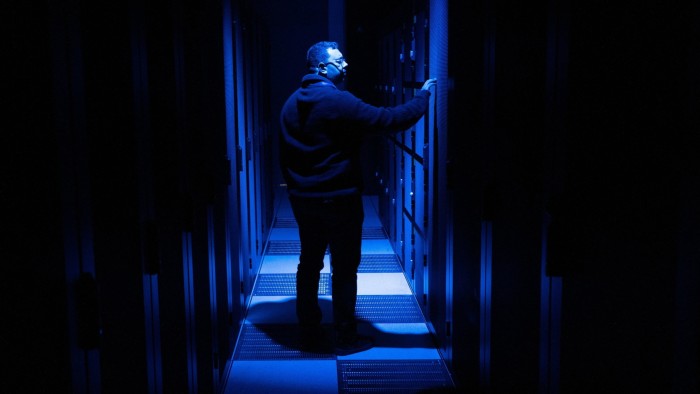Stay informed with free updates
Simply sign up to the Artificial intelligence myFT Digest — delivered directly to your inbox.
Big Tech’s spiking electricity use as it trains artificial intelligence must be reined in by governments in order to maintain stable supplies, the head of the world’s largest transformer maker has warned.
Andreas Schierenbeck, chief executive of Hitachi Energy, told the Financial Times in an interview that no other industry would be allowed as volatile a use of power as the AI sector.
Huge surges in power demand at data centres training AI models, along with a bumpy renewable energy supply, meant “volatility on top of volatility” was making it challenging to keep the lights on, he said.
“AI data centres are very, very different from these office data centres because they really spike up,” he said. “If you start your AI algorithm to learn and give them data to digest, they’re peaking in seconds and going up to 10 times what they have normally used.
“No user from an industry point of view would be allowed to have this kind of behaviour — if you want to start a smelter, you have to call the utility ahead,” he added, while advocating for data centres to have similar rules applied to them by governments.
Much of the concern about AI data centres has centred on the sheer volume of power they consume, but Schierenbeck, who used to run German energy group Uniper, is one of the first to raise the alarm about the big peaks and troughs in demand caused by AI algorithms.
The International Energy Agency predicts data centre electricity consumption will double to 945 terawatt-hours by 2030 — more than the current power used by an entire country such as Japan. Ireland and the Netherlands have already restricted the development of new data centres due to concerns about their impact on the electricity network.
Analysts at Rystad Energy, an Oslo-based consultancy, have argued that AI’s power demands can help to stabilise grids as long as tech companies set a maximum power limit for processing and schedule training of their AI models when renewables are plentiful.
Hitachi Energy was formed in 2020 out of the $11bn takeover of ABB Power Grids and is at the centre of a global shortage of power transformers — the essential grid components that help adjust voltage.
Schierenbeck estimated the shortage would take up to three years to ease and said the Japanese company was focused on reducing an order backlog worth $43bn, up from $14bn three years ago.
There was a shortage of specialist contractors who could build the reinforced flooring needed for manufacturing transformers that weigh hundreds of tonnes, he said. This was a limiting factor for the factory expansions that would allow the industry to catch up with demand more quickly.
Hitachi Energy plans to invest $6bn to increase production capacity and hire an additional 15,000 workers by 2027 to meet orders from utilities and grid infrastructure providers.
Schierenbeck predicted little trouble filling the roles, especially in Europe, where engineers are being laid off from the automotive and chemicals sectors.
